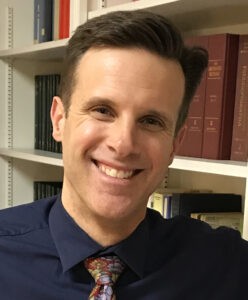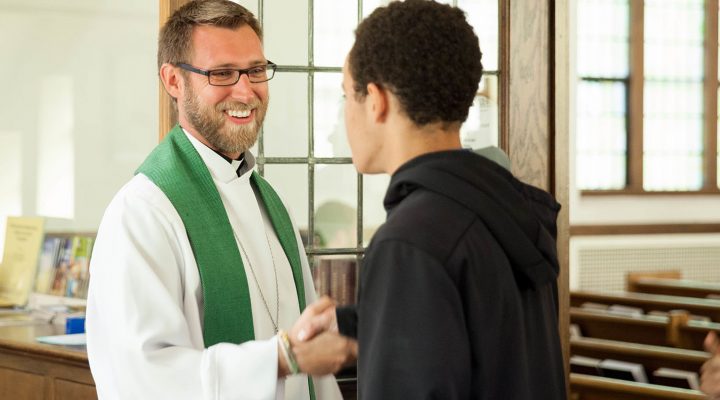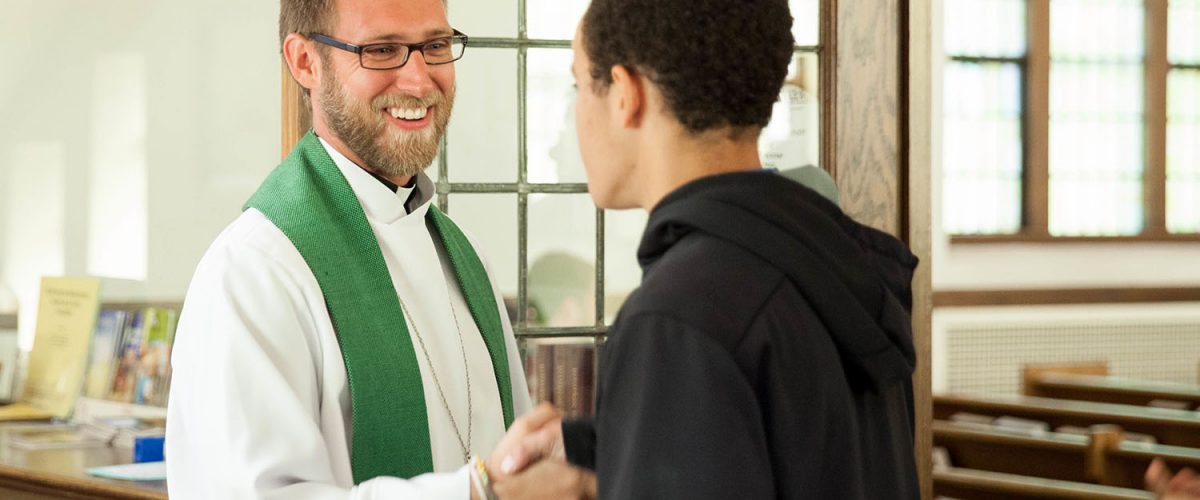There has been significant response to Alexander Lang’s post, “Departure: Why I Left the Church.” I know of two pieces published in Baptist News Global – Cody Sanders’ “I Left the Pastorate While Still Loving It” and Tyler Tankersley’s “Why I’ve Stayed.”
Alexander Lang states, on his personal Facebook page, that as of Sept. 4, his article was viewed more than 130,000 times. Most pieces he posts to his “Restorative Faith” website receive 70 or so views. Lang’s article indeed has engendered much significant conversation around the challenges of serving as senior pastor to a local Christian congregation.

Paul R. Gilliam III
My response to Lang’s piece is rather different than what is currently in circulation. It contains more reflection on the confusion that surrounds the identity of the pastor than the specific challenges faced by the pastor, pointed to by Lang, such as unrealistic expectations.
As it so happens, I have specifically pondered the confusion that exists surrounding the identity of the pastor for months now. I sense the wake left by Lang’s departure from pastoral ministry is the place for my thoughts to land. In fact, I have waited for just such an occasion.
To answer the title question, who exactly is the pastor, I employ a method borrowed from the discipline of theology referred to as apophatic. Apophatic theology defines God by what God is not. For example, God is not a created being.
The pastor, then, is not the parishioner’s buddy. This is a hard lesson to learn for both pastor and congregation as deep relationships often form between the two.
A pastor is with people during all phases of life — from birth to death, in sickness and in health. A good pastor will be found at both the hospital bedside and the soccer field. Indeed, the pastor is often given the status of ex officio family member even if never stated as such.
Yet, the pastor has the responsibility to proclaim the word of God, and the ways of God as demonstrated through the life of Jesus the Christ, to the same people the pastor walks with through triumph and tragedy.
“The pastor can be a friend of sorts, but not a buddy.”
In other words, the pastor does not only respond to people in a manner they desire. The pastor must also acknowledge the darkness that exists within the life of a congregation. The pastor/parishioner relationship becomes strained when the prophetic role of the pastor is not accepted as is the more enjoyable, for both parties, roles of nursing home visits and anniversary celebrations.
The pastor can be a friend of sorts, but not a buddy.
Mike Queen, who served as senior pastor to First Baptist Church of Wilmington, N.C., for 25 years, tells of a concern his father, Glenn Queen, expressed over Mike’s sense of call to vocational ministry. Glenn told Mike he was in for a bumpy ride because Mike’s job was to call people to faithfulness to God as expressed in the teachings of Jesus. However, people often will only tolerate this until it interferes with how they sincerely desire to live their lives.
Glenn then told Mike, to make matters worse, these same people are responsible for paying your salary. It seems Glenn, a layman who owned and operated Tradewell Supermarkets in Huntington, W.Va., understood well that church dynamics make it impossible for pastor and parishioner to be buddies during the pastor’s tenure.
Just as the pastor is not a parishioner’s buddy, the pastor also is not the congregation’s chief executive officer. It is unfortunate that the business model of a deacon board is still prominent in many churches, especially Baptist churches. The problems with this model are manifold. The foundational flaw, however, is that the business model supported by a deacon board encourages church leadership to view the senior pastor as primarily an employee of the church.
The pastor is not primarily an employee of the church. The pastor is primarily a servant of the church.
In addition, the business/CEO model of church administration breaks down further when the deacon board views the pastor as answerable to them only or mainly. In fact, in a congregational rule system of church governance such as is common among Baptist churches, the pastor answers to the entire congregation. The pastor has as many bosses as members of the congregation she or he serves.
In the congregations I served, the deacons could not hire or fire (to use business terminology) the pastor by themselves. They needed the vote of the church membership to do either.
“A CEO does not visit bedsides or attend graduations or officiate funerals for loved ones.”
Finally, the relationship of the pastor to the parishioner, while not buddy/buddy, is intimate. The obvious needs to be stated here. A CEO does not visit bedsides or attend graduations or officiate funerals for loved ones. Perhaps it should not surprise us that it is a mistake when the church, in action if not in word, substitutes employee for pastor or CEO for pastor.
The pastor holds a unique position within society. Nothing comes to mind that is quite like it. Certainly, the role of pastor is dissimilar from that of a chief executive officer.
In the first church I served as pastor, I tried to change the terminology of “deacon board” and “deacon chair” to “deacon team” and “lead deacon.” The terminology “deacon board” and “deacon chair” were so engrained, however, I gave up my efforts to alter terminology in favor of leading deacons to engage in more activity, like that found in Acts 6:1-7, such as widow and widower visitation.
Looking back to those early years of pastoral ministry, I am pleased I was able to assist deacons to expand their understanding of their servant role. However, I regret I gave up the efforts to alter the traditional vocabulary of “deacon board” and “deacon chair” to “deacon team” and “lead deacon.”
I’m not sure why I forfeited this battle, as I believed then as I do now that terminology matters. To this day, I refuse to use the word “church” to refer to a building — as difficult as this can be sometimes. I never welcome people to Winter Park Baptist Church. I welcome them to worship with Winter Park Baptist Church. Or I employ terminology from yesteryear and welcome people to the meeting house of Winter Park Baptist Church.
It is not uncommon for me to remind people the church of Jesus the Christ is not brick and nail. Rather, the church is flesh and blood. I will save discussion of Jesus the Christ for another occasion. However, I am intentional there as well due to a desire for theological accuracy.
“The church of Jesus the Christ is not brick and nail. Rather, the church is flesh and blood.”
Clearly, my decision to give up the struggle for “deacon team” and “lead deacon” was a rookie mistake.
Even so, I now find myself serving a church with a different administrative structure from all past congregations I served as pastor. The deacons of Winter Park Baptist Church have no major administrative responsibilities. In other words, the deacon ministry makes no financial or personnel or property decisions. This group of women and men is set aside for service to the pastoral needs of the congregation.
Of course, financial and personnel and property and all sorts of decisions must be made. Winter Park Baptist Church has committees and a church council in place to address the explicitly administrative needs of the church. These committees then present issues to the congregation, in regularly scheduled business meetings, for the congregation’s consideration and vote.
I admit, in the first couple of months of service, I have found it necessary to work a bit to find my footing in this new-to-me system. For all the faults of the deacon board model that in my experience is one small step removed from elder rule, the deacon board model is all I have known. Nonetheless, I now have found my footing within Winter Park’s governance structure. I do not yet know all the details of how Winter Park’s method of church governance came to be. I will not be surprised if I learn that it emerged after deep theological reflection.
I regret that Alexander Lang, as with so many others, decided to leave the pastorate. However, I do understand as I, too, have found myself in the dark places of vocational ministry. I only offer anecdotal evidence.
However, based on my own experiences serving as pastor to congregations in North Carolina, Virginia, and Scotland over a 27-year period, I believe fewer people would leave the pastorate if there were less confusion surrounding one fundamental question: Who exactly is the pastor?
Paul R. Gilliam III serves as pastor at Winter Park Baptist Church in Wilmington, N.C. He is also the author of two books: Ignatius of Antioch and the Arian Controversy and William Whiston and the Apostolic Constitutions: Completing the Reformation.
Related articles:
Why I’ve stayed | Opinion by Tyler Tankersley
I left the pastorate while still loving it | Opinion by Cody Sanders


